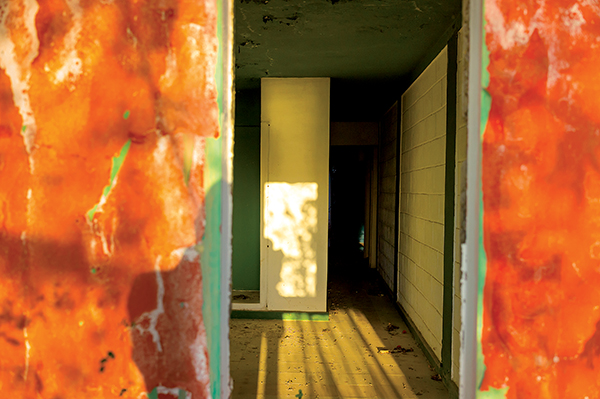Photos from Haiti open season at Sewanee gallery - Sept. 12-Oct. 18
Thursday, August 8, 2013
IF YOU GO• What: "The Third Heaven, Photographs From Haiti, 2006-2012"• When: Through Oct. 18. Open 10 a.m.-5 p.m. Tuesday-Friday, noon-4 p.m. Saturday-Sunday (all times Central)• Where: University Art Gallery of the University of the South, Georgia Avenue, Sewanee, Tenn.• Admission: Free• Phone: 931-598-1223• Website: www.sewanee.edu/galleryRELATED PROGRAMSThe University Art Gallery will host two events associated with "The Third Heaven" as part of the Sewanee Arts Festival, Sept. 11-21.• Friday, Sept. 13: Malde will present the exhibition in an artist's talk at 4:30 in Convocation Hall, next to the UAG, followed by a light reception.• Saturday, Sept. 21: In conjunction with a campuswide, after-hours Gallery Walk, the UAG will host a Haitian-inspired food tasting catered by Ivywild from 4:30 to 7:30 p.m.
The University Art Gallery in Sewanee, Tenn., is spotlighting the work of a University of the South art professor in the first exhibition of the 2013-14 season.
Pradip Malde's "The Third Heaven, Photographs From Haiti, 2006-2012" will be on view through Friday, Oct. 18. Director Shelley MacLaren says the color photographs "are grouped in long strips applied directly to the gallery walls, fostering a complex, immersive and empathetic experience for the viewer."
For Malde, the goal is to reveal that "the problem of Haiti matters to all of us."
According to MacLaren, Malde first traveled to Haiti in 2006 with the university's coordinator of outreach ministries. He has returned at least once a year since then and is working with students from the Episcopal University of Haiti in Port Au Prince on a documentary photographic project about community action and citizenship.
Roadside trees, sleepers, the open spaces of abandoned buildings and rain are among Malde's subjects in "The Third Heaven." His observations are fragments of experience and meditative in tone. Avoiding the drama and trauma that are all too easily associated with Haiti, Malde seeks the "quieter attitudes" he has experienced during his many trips to the country, and to "point to kindness, resilience, tenacity, and resourcefulness," in the face of the country's lack of infrastructure and effective government, he says.

